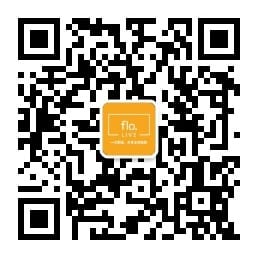Unlocking Connectivity in Turkey: The Roaming Challenge

In the last five years, the world has been experiencing friction in the rise of IoT, the wider spread of globalization, and the geopolitical atmosphere where countries are eager to protect themselves from a digital standpoint.
Data sovereignty, data localization, and permanent roaming bans have taken seats at the table, with permanent roaming bans gaining the most traction in the last five years. Several countries, including India, the UAE, Turkey, and Brazil, have created permanent roaming bans, which do not allow any devices to remain on local networks for more than 90 days.
A Regulatory Stop to Roaming
Roaming initially was a consumer-focused approach that allowed travelers to connect to local networks outside of their home network. But IoT has challenged this model, as many devices do not behave like consumer devices “traveling” for short periods. A device made in Brazil might need to be deployed in Spain and connect to that local network permanently.
This is what led to the rise of roaming SIMs that relied heavily on roaming agreements between Mobile Network Operators (MNOs). This was a “square peg in a round hole” situation. Permanent roaming was never intended to be a permanent solution. As the temporary fix continues to be strained by more and more IoT devices coming online, countries, whether for tax reasons, to protect local laws like privacy and data management, or to protect and bolster the local telecom market, are enacting permanent roaming bans.
A Necessary Stop to Roaming
From an IoT connectivity standpoint, roaming is by no means ideal. Not only was this a stopgap measure for MNOs offering the connectivity, but it was also for those using it.
First, roaming costs are typically greater than data usage in the home network, which already throws up a major red flag.
Second, performance is weakened. Latency is a major issue because the “request” from the device to use the network is sent to the home network and then through to the local network. Additionally, one country might use a different spectrum than another country. So, the 4G LTE in the United States might be different from the 4G LTE in Germany, and so on. This creates a scenario where not only do you have performance challenges but also reliability.
Third, roaming agreements can change, leaving your devices in the dark. Oftentimes, when IoT connectivity is discussed, “future-proof” is the gold standard. A device OEM in England will not have access to swap out SIM cards for devices deployed in Canada, necessarily. The greater the possibility that devices can be deployed for an entire lifetime without needing physical SIM swaps to change networks is ideal.
An Awkward Circumvention of Roaming
An IoT connectivity provider or enterprise has two main options, neither of which are ideal. They can use local SIM cards for a country’s MNO purchased through a local vendor or they can go operator-by-operator, which means multiple contracts and API integrations. It’s inefficient and can lead to lack of control and visibility.
Turkey is one of the countries that does not allow permanent roaming – hard stop. Devices must use local connectivity, and they must be compliant with the local regulatory body Protahub.
For some time, it seemed like Turkey was an island regarding global connectivity, but floLIVE, Kigen, and Protahub have aligned to deliver a unique solution to a historical challenge.
Navigating IoT in Turkey
IoT opportunities in Turkey are growing, and this market has wide entry. One of the most up-and-coming use cases in the country is fleet. The business needs of the fleet use case are challenging alone, and exponentially so when considering the connectivity challenge in Turkey. With the need for high bandwidth, high reliability, low latency, and AI-enabled features – this creates a perfect storm for IoT complexity.
Learn more about IoT connectivity in Turkey and how floLIVE, Kigen, and Protahub have laid out a simple path to tapping into the IoT market locally. Watch the on-demand recording from floLIVE and Kigen, and if you want to hear more, just reach out!










